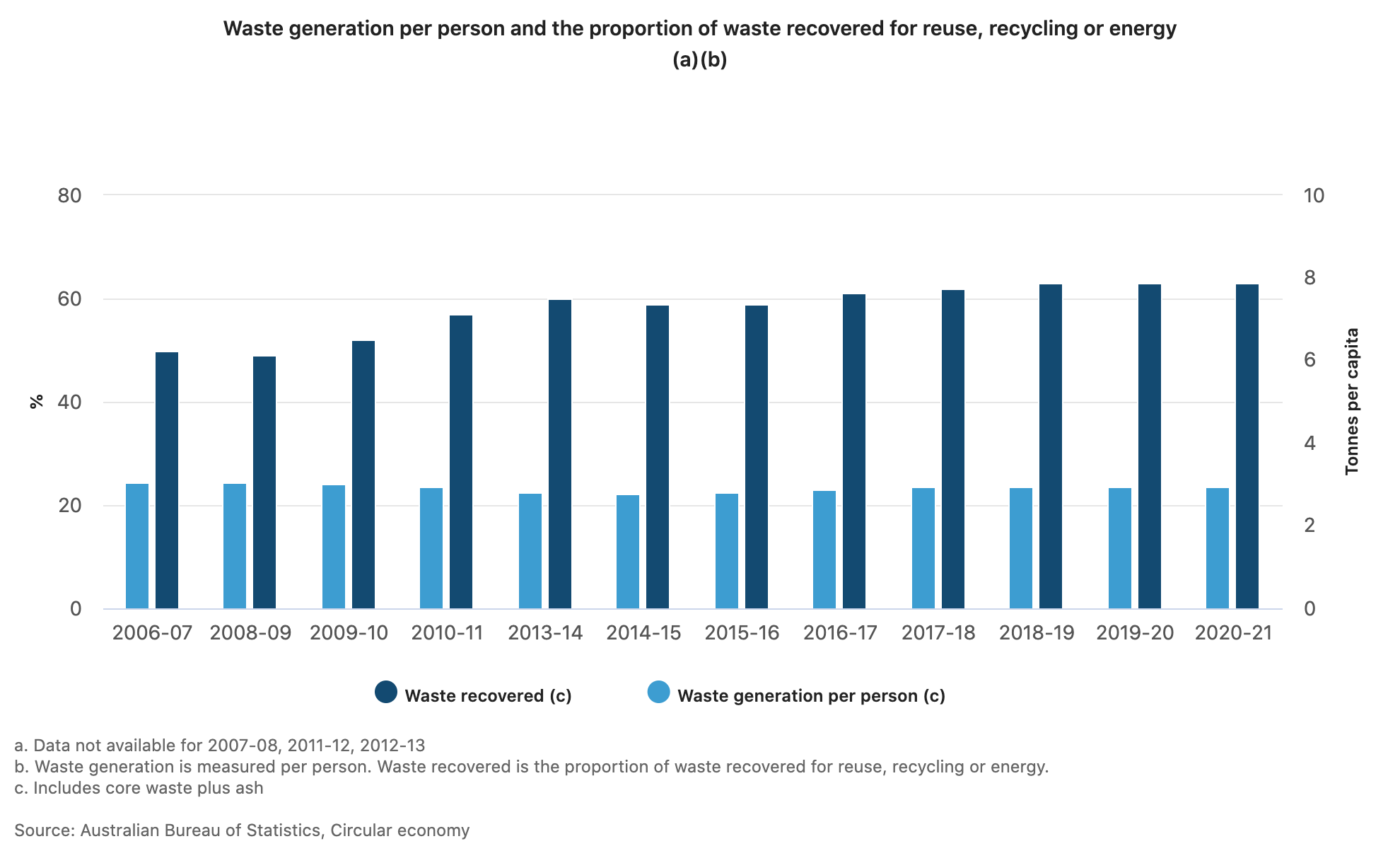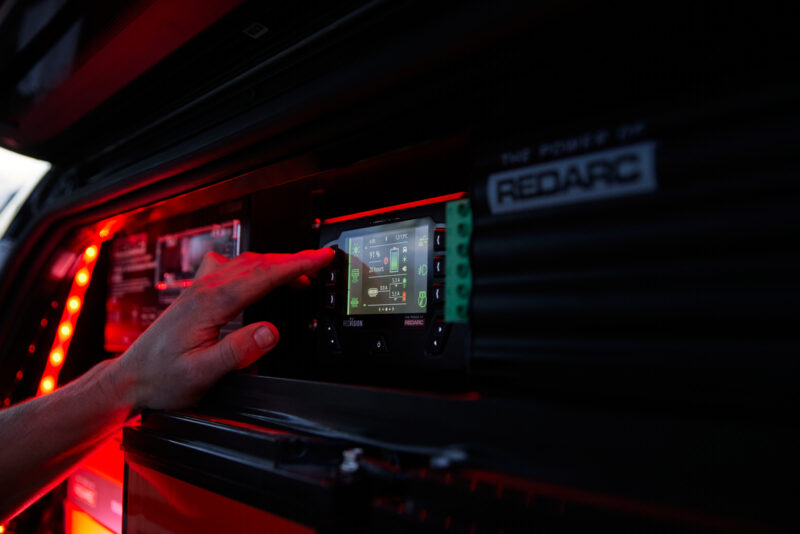Waste is a fact of life. It may be unavoidable, but that doesn’t mean we shouldn’t interrogate our relationship to it.
During the financial year 2022–23, Australia generated an estimated 75.6 million tonnes (Mt) of waste. That included:
- 13.5 Mt of municipal solid waste (MSW) from households and local government activities (512kg per capita and 18% of the total)
- 32.9 Mt from the commercial and industrial (C&I) stream including ash (44% of the total)
- 29.2 Mt from the construction and demolition (C&D) stream (39% of the total).
This boils down to roughly 2.95 tonnes of waste generated per person, a drop from 3.05 tonnes per person in 2006-07.
Over our 20+ years as a research agency, Square Holes has worked with a number of organisations hoping to educate and support the community and corporations to rethink their role in waste management. From community campaigns about which bins to use, to learning how to engage young people in environmental action, to building a stronger output as a pioneer in the circular economy movement, Square Holes have delved into community assumptions and attitudes around waste.

One such group is Green Industries SA (GISA), a government organisation dedicated to supporting a circular economy in the state of SA.
Matthew Scales, Associate Director Engagement and Communications at GISA says that our relationship to waste plays a pivotal role in climate change.
“Waste plays a critical role in addressing climate change. Every product we send to landfill represents lost resources and energy, contributing directly to greenhouse gas emissions,” says Scales.
“By rethinking waste as a valuable resource through recycling, reuse, repair, and recovery, we reduce our reliance on virgin materials, lower energy consumption, and directly cut emissions. Waste is not just an environmental issue; it’s central to achieving our net zero ambitions.”
One of the strongest ways that we can contribute to a healthier environment is via our relationship to waste. According to Matthew, that means moving past a simple recycling outlook, to actively reducing our consumption habits.
“We hope our community embraces waste as a resource rather than something disposable. This means moving beyond recycling towards actively reducing waste generation, repairing items instead of discarding them, and choosing products designed for longevity and reuse,” says Scales.
“A collective shift towards seeing waste as valuable will have enormous positive impacts on our environment, economy, and society.”
According to Matthew a big part of GISA’s tactic to bring the community on board with circular economic practices is through market research.
“At Green Industries SA, we rely heavily on data and market research to guide our approach. By understanding community attitudes, behaviours, and barriers to waste reduction, we can tailor initiatives to maximise impact,” said Scales.
In our recent work with GISA, Square Holes partnered with the organisation to help change community behaviour at a household level. For Scales, this research enabled the organisation to help tailor their message in a way that would have the greatest impact.
“Recent market research informed our statewide campaigns, identifying opportunities to link everyday waste choices directly to climate action. By grounding our conversations in robust data, we’re better positioned to engage households and businesses, making sustainability achievable and relevant for everyone,” says Scales.
Want to learn how Square Holes can help your organisation shift narratives and guide behaviour? Head here.



